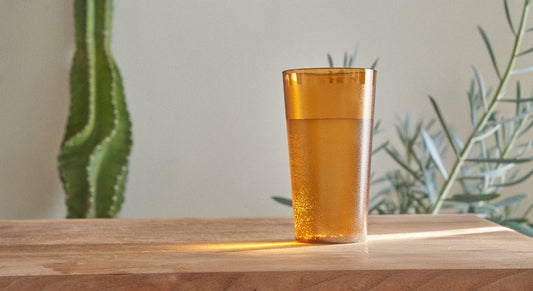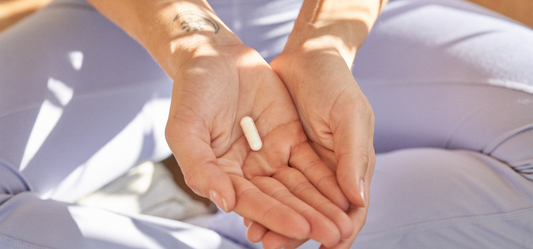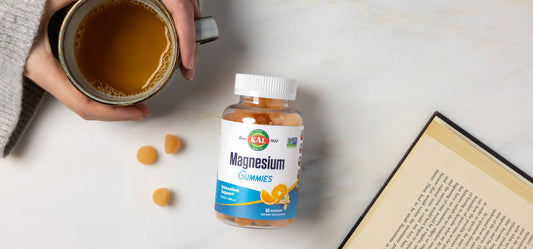The foot bone is connected to the ankle bone…the ankle bone is connected to the leg bone…the leg bone is connected to the brain. Wait, that’s not how the song goes! But a new research study shows a significant connection between your bones and your brain health.
What Happens if Your Bones Are Weak?
The 2023 study published in the journal Neurology(R) followed more than 3,600 women for over 11 years to monitor how bone and brain health changed with age. The women in the study who developed low bone mineral density had an increased risk of having poor brain function compared to individuals who had strong bones.[1] The researchers suggest that one reason for this connection is that when harmful proteins build up in the brain, they increase the activity of cells that break down bone. These proteins also suppress the activity of cells that build bone, which weakens bone density.
The mineral density of bones helps determine overall bone strength. When bone density is low, there is an increased risk of fracture.[2]This new study demonstrates that there may be an additional risk to brain health when bone density is weakened, which means protecting and enhancing bone health is even more important than ever.
What You Can Do About It
A great way to protect and enhance bone health is with exercise, especially weight-bearing exercises such as brisk walking, hiking, jogging, dancing, stair climbing, and sports like tennis, pickleball, and basketball.[3]
From a nutrition standpoint, research shows that the Mediterranean diet is great for bone health because it features whole unprocessed foods like fruits, vegetables, nuts, fish, and olive oil—a healthy fat.[4]
Specific vitamins and minerals are also critical to bone health and can enhance the strength of bones. For example, research shows that calcium, magnesium, vitamin D, and vitamin K help improve the quality of the bone’s structure and that deficiencies in any of these nutrients can negatively influence bone health.[5] Calcium is often associated with bone health, but calcium can’t influence bone density without magnesium, that’s why the two minerals are often taken together to support bone health.[6] Other nutrients that can help support bone strength include boron, biotin, copper, manganese, selenium, and zinc.
Make Bone Health a Priority
Thanks to this new research, we know that focusing on bone health is not just good for the body, but also good for your brain! You can support the health of your bones and brain with exercise, a healthy whole-food diet, and taking key vitamins and minerals. Looking to stock up on vitamins and minerals? Learn which supplements to take at every age.
For more tips on nutrition, staying healthy and motherhood follow us on Instagram at @kalvitamins!
Neurology(R) is a registered trademark of the American Academy of Neurology
References
[1] Xiao T, Ghata S, Mooldijk SS, et al. Association of bone mineral density and dementia: the Rotterdam study. Neurology. 2023; Mar 22.https://n.neurology.org/content/early/2023/03/22/WNL.0000000000207220
[2] Curry SJ, Krist AH, Owens DK, et al. Screening for osteoporosis to prevent fractures: US Preventive Services Task Force recommendations statements. JAMA. 2018;319(24):2521-2531. https://pubmed.ncbi.nlm.nih.gov/29946735/
[3] American Academy of Orthopedic Surgeons (Accessed April 2023). Exercise and bone health. OrthoInfo. https://orthoinfo.aaos.org/en/staying-healthy/exercise-and-bone-health/
[4] Quattrini S, Pampaloni B, Gronchi G, Giusti F, Brandi ML. The Mediterranean Diet in Osteoporosis Prevention: An Insight in a Peri- and Post-Menopausal Population. Nutrients. 2021;13(2):531. https://www.ncbi.nlm.nih.gov/pmc/articles/PMC7915719/
[5] Capozzi A, Scambia G, Lello S. Calcium, vitamin D, vitamin K2, and magnesium supplementation and skeletal health. Maturitas. 2020;140:55-63. https://www.sciencedirect.com/science/article/abs/pii/S037851222030284X
[6] Castiglioni S, Cazzaniga A, Albisetti W, Maier J. Magnesium and osteoporosis: current state of knowledge and future research directions. Nutrients. 2013;5:3022-3033. https://www.mdpi.com/2072-6643/5/8/3022




